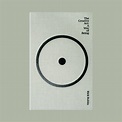Working the Muse? Or Letting it Work You.
I always thought of myself as a workmanlike writer, someone who gets his work done by putting butt in chair, words on paper, doing daily labor. My heroes were writers like Robert Parker, who died at his desk, and John D. MacDonald, who took his writing as a full-time job, nine to five, seven days. I measure myself by goals: time at the desk, pages committed, progress toward the whole. When I gave up writing poetry, I also abandoned the idea that the muse  would descend into my atelier and kiss me on the cheek to get me started.
would descend into my atelier and kiss me on the cheek to get me started.
So why did Rick Rubin’s book on creativity, The Creative Act, ring such a loud bell for me?
 The Creative Act is a compendium of Rubin’s thinking and experiences in getting his own work done: helping musical artists produce their best work. The book collects homilies and aphorism, many of which are tinged with a Western interpretation of Buddhist concepts, like beginner’s mind. They talk of tapping into the universe, opening yourself to inspiration, engaging with a creative consciousness. Some samples:
The Creative Act is a compendium of Rubin’s thinking and experiences in getting his own work done: helping musical artists produce their best work. The book collects homilies and aphorism, many of which are tinged with a Western interpretation of Buddhist concepts, like beginner’s mind. They talk of tapping into the universe, opening yourself to inspiration, engaging with a creative consciousness. Some samples:
The person who makes something today isn’t the same person who returns to the work tomorrow.
Talent is the ability to let ideas manifest themselves through you.
It’s helpful to work as if the project you’re engaged in is bigger than you.
I came to the book with skepticism, not sure how tapping into what Rubin  was talking about might facilitate my desire to tell good stories. But as I took in some of his ideas (and discarded others), I started to feel as if I might be leaving something out of my writing by focusing so completely on only the things I could control: number of words, hours in the chair. It felt like the height of egotism to believe I understood everything about how I did my work.
was talking about might facilitate my desire to tell good stories. But as I took in some of his ideas (and discarded others), I started to feel as if I might be leaving something out of my writing by focusing so completely on only the things I could control: number of words, hours in the chair. It felt like the height of egotism to believe I understood everything about how I did my work.
Because while the work is always the work, the idea, the breath behind it has to come from somewhere. And even if you believe you generate the work in the writing itself, how do you look at that process as anything but magic?
There is a great body of material in the world, books, videos, courses, around making people writers, helping them get their stories into the world. I would never downgrade any kind of help, but most of what’s available seems to be rational strategies: making time to write, addressing your weaknesses, editing, structuring, etc.
What I think we forget, and maybe this is especially true for writers who’ve been working at it a while, is the joy in the parts of the work we can’t control or understand, the new idea, the unexpected twist in a story, a character doing something we didn’t see coming. What we do has resonance outside our consciousness of the process, and this is what Rubin’s book brought back to me. No matter how you write, it’s never an entirely rational process and the more we remember that, maybe the better it gets.
Lea Wait's Blog
- Lea Wait's profile
- 508 followers



